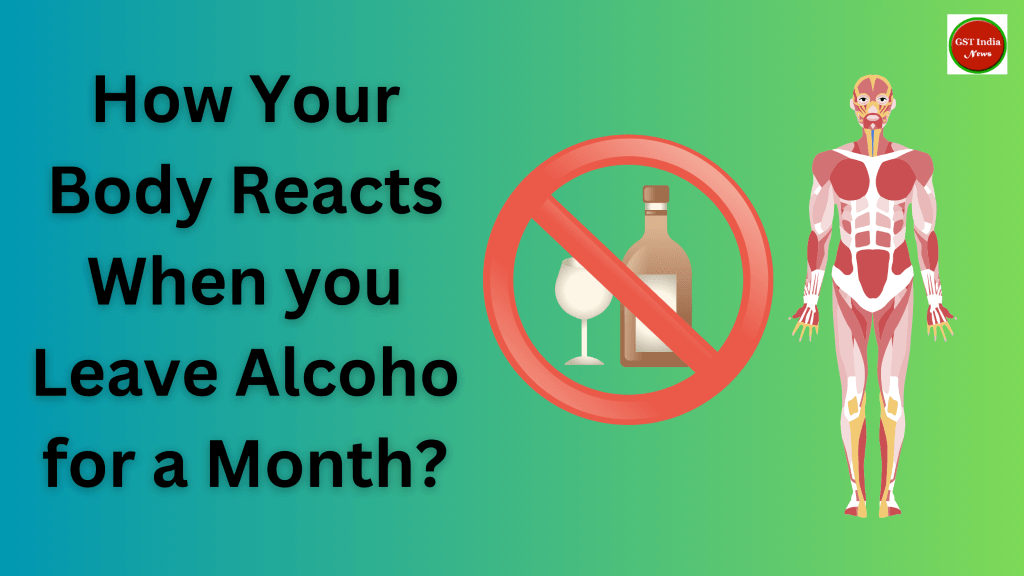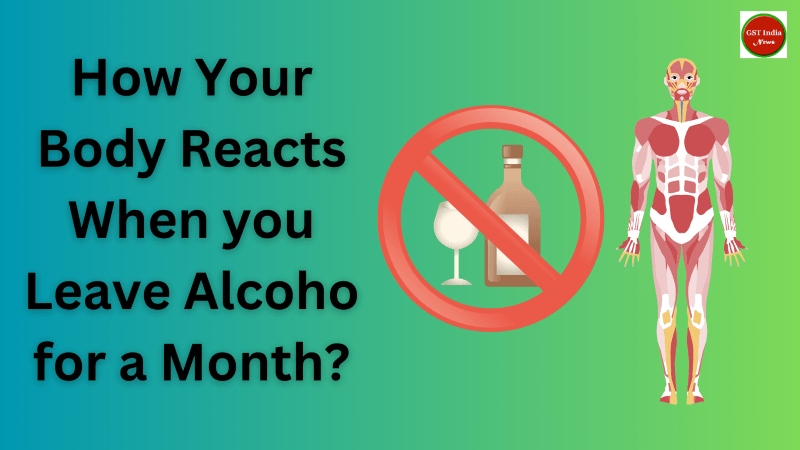Introduction: Alcohol is deeply ingrained in many cultures worldwide, often intertwined with social events, celebrations, and daily routines. However, excessive alcohol consumption can have detrimental effects on physical and mental health. Fortunately, the decision to abstain from alcohol can lead to a myriad of positive changes within the body, even within a relatively short period. Let’s explore what happens to your body after leaving alcohol behind for just one month.

Improved Liver Function
One of the most significant changes that occur after a month of abstinence from alcohol is the remarkable recovery of the liver. The liver is responsible for metabolizing alcohol, and excessive drinking can lead to inflammation, fatty liver disease, and even cirrhosis. However, within just a few weeks of sobriety, the liver begins to repair itself. Enzyme levels associated with liver damage decrease, and fat accumulation in the liver decreases, leading to improved liver function.
Enhanced Mental Clarity
Alcohol consumption can impair cognitive function and contribute to mental fog and memory lapses. After abstaining from alcohol for a month, many individuals report increased mental clarity and sharper cognitive function. This improvement is attributed to the normalization of neurotransmitter levels and improved sleep patterns. Without the disruptive influence of alcohol, the brain can function more efficiently, leading to better focus, concentration, and overall cognitive performance.
Quality Sleep
While alcohol may initially induce drowsiness, it disrupts the sleep cycle and impairs the quality of restorative sleep. Withdrawal from alcohol can result in temporary sleep disturbances, but within a few weeks, sleep patterns tend to normalize. As the body adjusts to sobriety, individuals often experience deeper, more restful sleep, leading to increased energy levels and improved overall well-being.
Weight Loss and Improved Physical Appearance
Alcoholic beverages are often high in empty calories and sugar, contributing to weight gain and bloating. By cutting out alcohol for a month, many people experience noticeable changes in their physique. Weight loss is common, especially around the abdominal area, as the body sheds excess fat accumulated from alcohol consumption. Additionally, the skin often becomes clearer and more radiant, as alcohol can dehydrate the body and exacerbate skin conditions such as acne and rosacea.
Balanced Mood and Emotional Stability
Alcohol is a central nervous system depressant that can exacerbate feelings of anxiety and depression, particularly during periods of withdrawal. However, as the body detoxifies and adjusts to sobriety, many individuals report improved mood stability and reduced anxiety levels. Without the rollercoaster of emotions induced by alcohol, people often experience a greater sense of emotional resilience and overall well-being.
Strengthened Immune System
Chronic alcohol consumption weakens the immune system, making individuals more susceptible to infections and illnesses. After abstaining from alcohol for a month, the immune system begins to rebound, increasing the body’s ability to fight off pathogens and recover from illness more effectively. This boost in immunity can lead to fewer sick days and a reduced risk of long-term health complications.
Conclusion: The decision to abstain from alcohol can be a transformative journey for both body and mind. Within just a month of sobriety, individuals experience a multitude of positive changes, ranging from improved liver function and mental clarity to enhanced physical appearance and emotional well-being. By prioritizing health and wellness, those who choose to leave alcohol behind embark on a path toward a healthier, happier life.

